Pax Britannica. Revolution
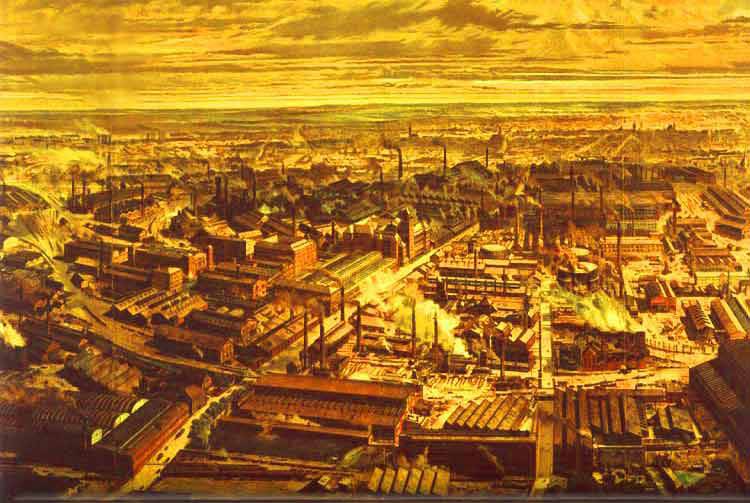
James Watt
“I looked up to the sky and lowered them to the ground. And he said to himself: both must become British. ”
Cecile John Rhodes
In Russia, it is customary to speak of this country, as a rule, negatively. In principle, this is completely understandable: for many generations, the British Empire was the main enemy of the Russian Empire first, and then the USSR. Two world wars have changed little here. In principle, they don't like British people, they reciprocate us, but we shouldn’t splash out a baby with milk. So, we will talk about the British Empire. Of course, in brief and, of course, about one, the most important period in her stories, namely the end of 18-th - the end of 19-th centuries.
Again and again: we do not like Britain, and there is nothing to love for. Practically since the end of the Napoleonic wars, the British were actively engaged in subversive activities against Russia. It is no accident that London has already served as a gathering point for the Russian opposition for a century and a half. But what bastards, how they work! One and a half hundred years they lead a war against us! What consistency in pursuing a goal! The British have always wanted to destroy our state and were sometimes quite close to their goal, but today I am not talking about that. I have the courage to say that Britain has given an incredible amount to this planet. They did a lot of bad, but a lot of good. The world that we see around us is in many ways the fruit of their efforts.
To understand this, it is necessary to return there, at the end of the eighteenth century, in its last two decades. So, the world was then completely different. As a matter of fact, that world had much more with the Middle Ages than with the present. Almost no cars. No them from the word at all. Nowhere: neither on land, nor at sea, nor in industry. Yes, there are some funny samples of the piece. But this does not change the situation. No Sources of energy were poultry animals, flowing water, wind, and - naturally and inevitably - the muscular energy of man. Eco-friendly time was! Neither oil prices nor global warming!
Speaking seriously, then it was very difficult to live, it was necessary to work a lot and die early. Just a person who plows like a horse cannot be completely human. Such a funny paradox: labor created man from a monkey, but he is also able to turn him into an animal. But there was one magical island on which the massive use of steam engines for pumping water from deep mines began in the 18 century. The first experimental machine by Thomas Severi was patented in 1698. In Russia, this is the year of the Great Embassy in Europe. By the way, they could call in, inspect the "demonic thing." This is me to the fact that Peter appeared very, very timely, and could be late.
A more advanced machine, Thomas Newcomen, was created in 1712 year. In the same year, Peter created the first Russian Military Engineering School and transferred the capital to St. Petersburg.
1778 year: a significantly more sophisticated James Watt steam engine. Power increased 5 times, and it became possible to convert the translational motion of the piston into a rotational one. It was here that everything began to turn ... In the literal and figurative sense. The world has changed forever. We, pampered by the universal automobilization and flat-panelization of the Internet, are hard to understand what those first, primitive and cumbersome machines meant to humanity.
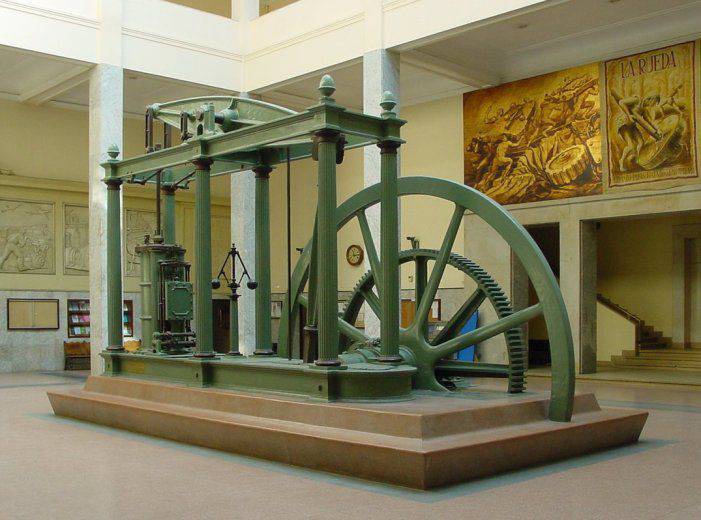
It was an endless source of movement. Coal, burning, allowed to do the very work that was previously done was either difficult or impossible. We have somehow got used to it (since Soviet times) that you can get to any point of the country by public transport. And it could afford any (up to 1991 year). The brilliant economic reforms somewhat changed this situation, but what happened was (thanks to comrade Brezhnev for our happy childhood). In the largest country in the world, almost any adult citizen had the opportunity to cross the whole country "back and forth" - like a hobbit. But this was not always the case: for most of the history, traveling over long distances was the lot of a few, very few, frankly, the elect. Nine-tenths of the population never left farther than the nearest fair. So, it was the British who changed the situation: the creation of mass railway transport made it possible to travel hundreds of miles - quickly, comfortably and cheaply. We got used to the fact that going to Moscow by a compartment car from Yekaterinburg in twenty-eight hours is, on the one hand, corny, on the other hand, long.
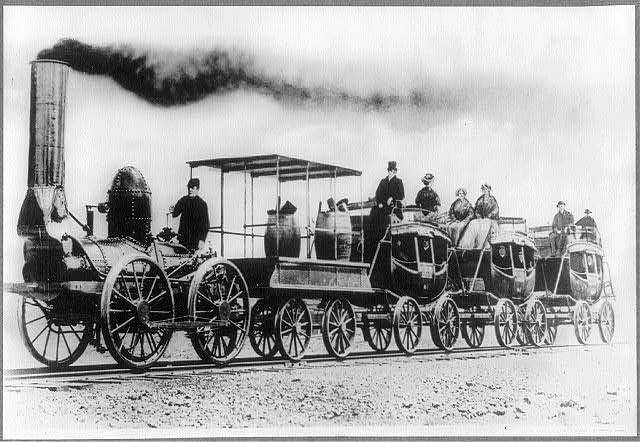
However, at one time it was more difficult and more expensive to go to Moscow from the Urals than to get a diploma of higher education today. The world has changed thanks to the British, and we have changed with it. The same can be said about cheap and massive sea travel. They became possible in the second half of the 19 century, and only thanks to the industrial revolution. Everyone who watched the unforgettable Titanic will confirm this. In the era of the settlement of the New World, the voyage from Europe was so expensive that many potential “green card holders” sold themselves into slavery (temporary, and there the card would fall). People literally deprived themselves of freedom to get it. So the very first slaves in the United States were completely white (slightly dirty after a transatlantic voyage) skin color.
So the Kenyan half-blood prince is not unique in its shameful past, the blood of slaves flows in the veins of many completely white Americans. Hard to believe? But it was just like that! At the same time, the Titanic of the era of the victorious industrial revolution took hundreds and hundreds of poor Irish people in their womb, who nevertheless did not sell themselves into slavery in order to get a ticket to the new world. Yes, in the 19 century, the world has irreversibly changed: the level of “options” available to the common man has grown rapidly. By the way, it was in London in 1837 that the commercial exploitation of the telegraph apparatus began. A kind of Internet 19 century ... How long has it been! Before the introduction of the telegraph information was available only locally. After its introduction, the British lords could directly lead the Crimean campaign (which, by the way, was not always good).
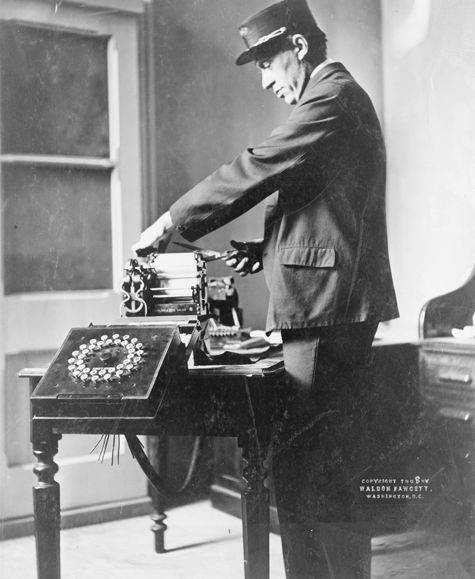
The lathes were known for a long time, even Peter the Great was not only a ship's carpenter (with a diploma), but also a notable turner, but it was in Britain in 1800 that Henry Maudsley developed the first industrial cutting machine to standardize the thread. And the same Maudsley invented a micrometer with an accuracy of ten thousandth of an inch (3 μm). And this is the beginning of the 19 century! It was during these one hundred years (the end of 18 - the end of the 19 of the century) that humanity rushed forward rapidly. And it happened primarily in Britain. The eighteenth century, with all its achievements, is one thing, and the nineteenth is something completely different. It was in the 19 century that human development accelerated rapidly, and, oddly enough, it was impossible to imagine without Britain.
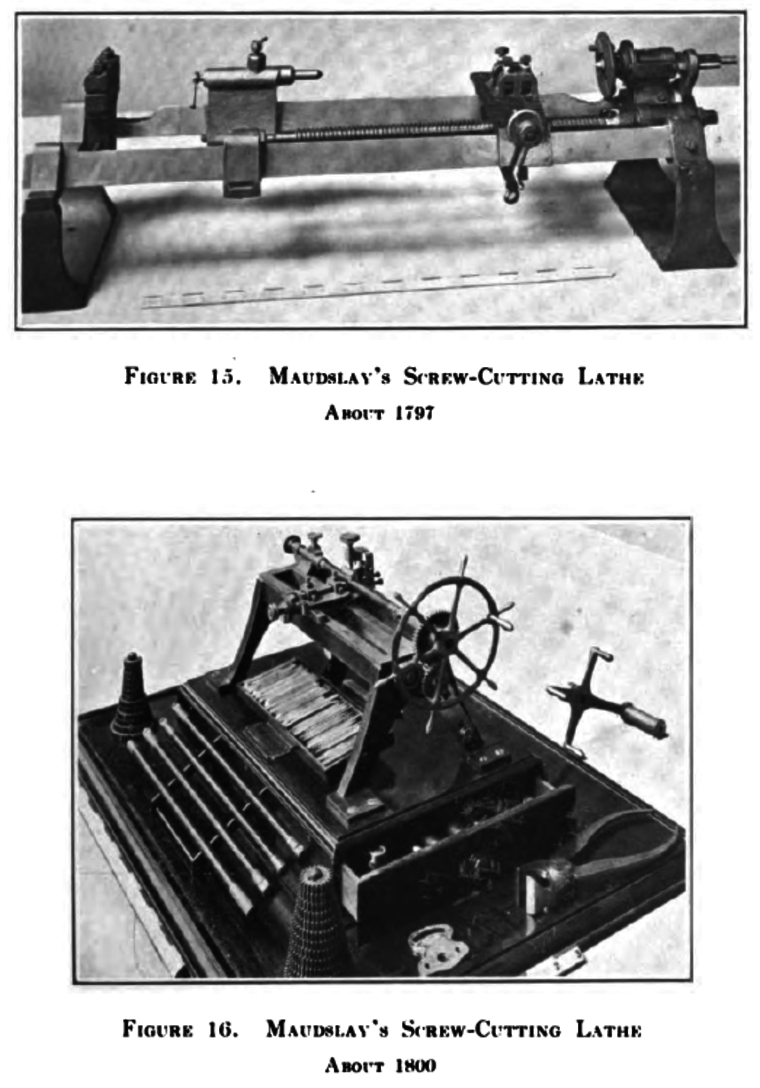
Other European and then non-European countries were forced to follow the same road. Mass production of steel and cast iron, as well as their processing on machine tools with a mechanical drive - this is a sign of the 19-th century. Thickly smoking chimneys of workshops - this is also the 19-th one. By the way, for some reason, an undeservedly forgotten century, because apart from the Napoleonic era, everything else is somehow not deposited in the minds of the general reader. But this particular century was truly a turning point. A typical Briton of the 18 century is a poor tenant, a typical Briton of the beginning of the 20 century is an industrial worker or a miner.
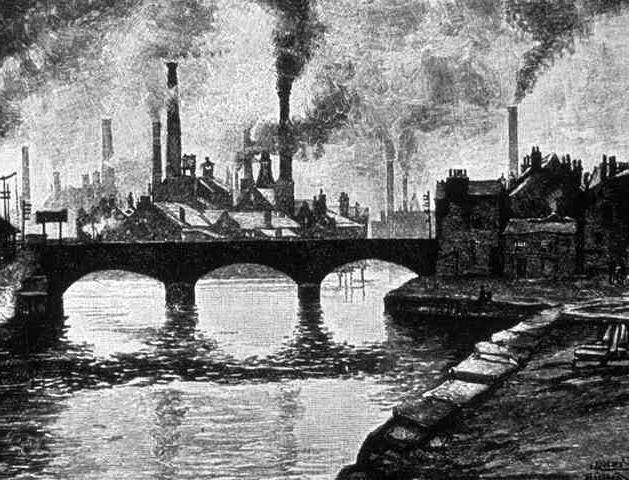
Now I would like to talk about the main thing: the value of the very industrial revolution. As you know, everything in this imperfect world has its price. As everyone remembers, our industrialization was carried out under Stalin in a very short time, and the price was very high. For this Stalin decided to criticize, and very hard. It can be assumed that in democratic Britain everything was completely different. Well, could not there be such ugliness on free British land? Of course not. Everything was much worse and much longer (this is not a figure of speech).
It is difficult to find a forumchanin who would not come across the term “poplane”, i.e. a person who finds himself in a distant or not very past and is actively engaged in cultural triger with a varying degree of success. Frequent and "industrial revolution", artificially created, for example, in medieval Japan. I would not have minded and would have spent the Internet to the emperor Augustus ... But seriously, how much was the industrial revolution possible somewhere else and in another time?
Most likely no. The reason, as already mentioned, is the cost. The cost of the industrial revolution, as we well know from our own sad experience, is transcendent. Alas, this is not changing anything here. The tragedy is that we are building an industrial future, relying on the resources of the previous, agricultural era with very different financial opportunities. And the creation of one-two and even ten exemplary factories cannot solve the problem. Not enough of this. They will not create those exemplary plants, mines and shipyards of the necessary economic effect. It will wither away all this in a couple of decades or in a couple of generations. It is necessary to create a “self-sustaining nuclear fission reaction” by the hands of half-naked slaves ... Or, seriously, the creation of a national industrial complex by the hands of yesterday’s peasants, and at their own expense.
The road to a bright future is quite expensive and is paved with the bones of those who did not reach there. In Britain, it was just that. The Stalin era simply compressed a long British experience in one generation, which is why it looks so awful. But even in Britain, in order to make the first transition in the world to the industrial age, they had to break the backbone of their own people. Who in the first place? Peasantry, of course. We all heard about the very "enclosures" from the course of school history, of course. It doesn't sound very scary - well, they put up a fence, what is so terrible here? So, it was a real genocide of the British people. Before robbing the half-planets Earth, the British lords robbed and destroyed the British peasantry.
If Stalin's collectivization is called by some "the second serfdom", then in Britain everything was much worse and much longer. Sheep grazing turned out to be more profitable than traditional farming, and there is very little land in democratic Britain. There are many people, but there is no land. The solution was found both simple and ingenious. People began to be driven from the lands where their ancestors lived for centuries. Yes, a civilized British landowner - this is not Sobakevich or Plushkin. The British peasants became redundant, and they began to get rid of, so to speak, dispose of unnecessary biomass. Those who like to play strategy will easily understand the situation - the limit of the population has been reached. It is necessary to circle the extra peasants frame and press Del. Yes, sadly (I myself wept sobbing when my guinea pig died), but progress requires sacrifice.
The owner of the land, a noble landlord, invited soldiers to the crown, and they drove the peasants out of the village, and their houses were burned. Run the sheep! So Shaun the lamb was a nightmare for millions of Britons. This impudently grinning ram was perhaps more terrible than Adolf Hitler for the Jews. And this process was going on for two and a half centuries. By the end of the eighteenth century, it was successfully completed. There remained large commodity farms and powerless laborers (tenants). What is characteristic is that simultaneously and simultaneously in the cities, manufactories and work houses grew. The peasant driven from the land automatically turned into a criminal. Being a bum in blessed England, Scotland and Ireland was a crime. He could be pursued and poisoned "like a wild beast." Even in the 18 century - the century of freedom and enlightenment. The one who reached the tramp could get it into the property (sounds tempting?). Consequently, manufactories received a lot of powerless labor and, of course, very cheap labor. Here is another one of the origins and foundations of the industrial revolution in Britain. A lot of beggars, hungry, destitute people who are ready to work for a couple of coppers. But even for these two coppers there was fierce competition. Losers got into "work houses" - for details on Dickens. More big losers ended their worthless lives on the gallows. Some of the waste biomass was shipped in shackles to Australia, where it was used as slaves. White-skinned slaves - this is a feature of the British Empire, its birthmark.
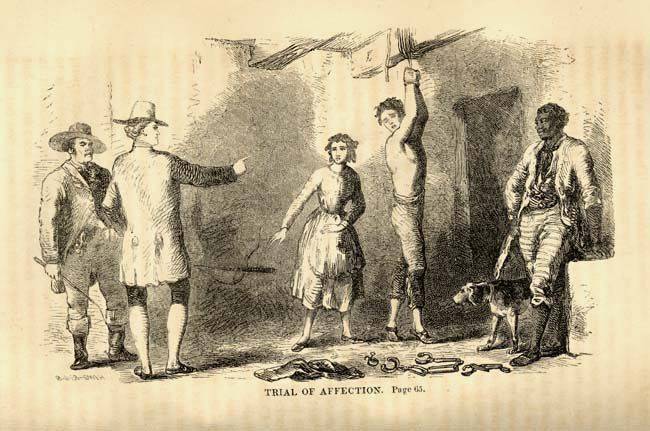
How is Nekrasov? "Straight track: narrow mounds, / Bollards, rails, bridges. / And on the sides, all the bones are Russian ... / How many of them! ”Here in Britain there were no less“ bones ”, it was literally strewn with them (the country is smaller, there are more people running around). But for some reason, speaking of this wonderful country, everyone remembers Chelsea and the Charter of Freedoms. But, of course, even this was not enough for the industrial revolution. The transition to a new stage of development was expensive, very expensive. So I had to rob India. Before the arrival of civilized Europeans, China was the largest market on the planet (all of a sudden!), The second largest in India. India was a very rich country, fabulously rich. Largely due to the plundering of India, the world's first industrial revolution was carried out.
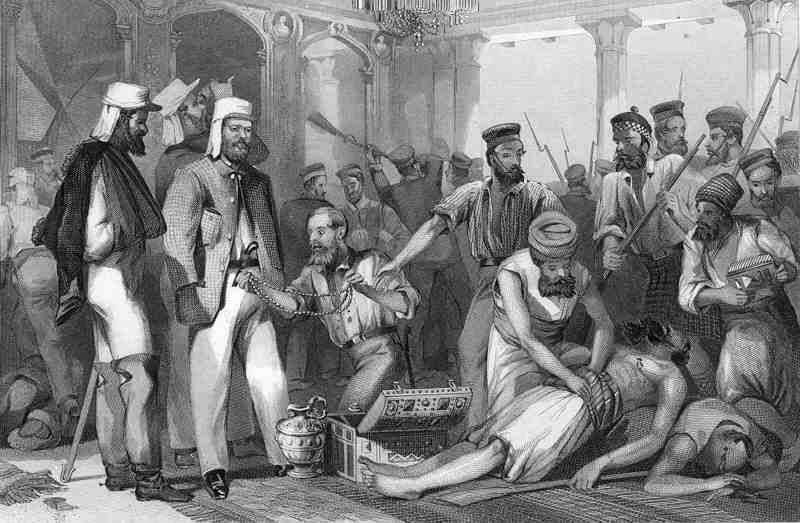
Then there was China and the "opium wars" - an incredibly interesting topic! It's no joke, “opium wars”, romance! The heroic Britons of all of China got hooked on drugs in order to finance the very revolution ... Can anyone today do this? Become a wholesale drug dealer for the whole of China? And you say: Stalin, Beria, Belomorkanal ... There are more terrible things.
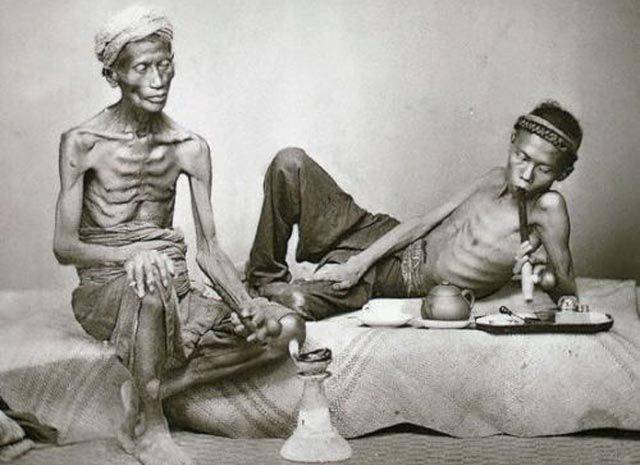
What we see in contemporary India is the consequences of the colonial era. The consequences of prolonged robbery and slavery. All complex structures and production were destroyed. British factory production did not want to endure competitors. At the same time, tens of millions of Indians died from hunger, poverty and disease, but who would have thought them? In general, trying to return to the past and repeat the industrial revolution is meaningless and useless, too monstrous price had to be paid in the current reality. And it was precisely the British Empire, which controls world trade and world finances, to turn this whole undertaking in a short period of time. It was the huge market of the British Empire that provided the sales of products of new factories and plants. Indian weavers died of starvation, but British factory-made fabrics found a huge new market. The British essentially forbade the development of industry in the colonies, it was this that gave the load to British factories. The British fleet (commercial and military) - the largest, most powerful and modern in the world - provided loading to British shipyards, which in turn gave orders to metallurgical, steel-rolling and metal-working enterprises. And all this was collected on one small island.
In fact, for this very “phase transition” it was necessary to concentrate the resources of a significant part of the planet in one place. And this was done not voluntarily, but at the barrel of British guns and guns. Perhaps, without the British Empire, the age of "coal and steel" could stretch several times and generally remain unfinished. The fact is that the introduction of certain technical innovations, such as new methods of steelmaking, did not give one or another power a decisive advantage, and it was very expensive. By the way, it was in the British Empire that the most important book of the Western world was written - “Capital”. Karl Marx, being in the very center of events, was so shocked by the terrible miracles that were unfolding before his eyes that he created this most immortal work (this is not irony). We are accustomed to the industrial wonders of the twentieth century, but we must not forget that the nineteenth century has its own achievements, such as the Great Eastern, a transatlantic steamer.
It still seems to me that in the 19 century technical development went even faster than today. The world of 1800 and the world of 1850 are two completely different worlds. And, oddly enough, after the defeat of Napoleon, there were no longer any large, protracted wars (unlike the century of 20). But they say that war is the engine of progress. The creation of the industrial world meant the creation of a new habitat. Close quarters of overcrowded working-class districts, permanent smog (from coal!), Minimal sanitary facilities or lack thereof. The nineteenth century even in London (and especially in London!) Was not a heavenly time. The mortality rate was very high, the crime of the beyond, the prison terrible. And yet, from this very world came the modern industrial civilization. By the end of the 19 century, the German Empire and the United States began to press Britain in the field of industry. The advances in chemistry and electrical engineering are no longer entirely British. But, before retiring to second positions, Britain created the last masterpiece, her “thesis” before eternity: Dreadnought (all big gun).
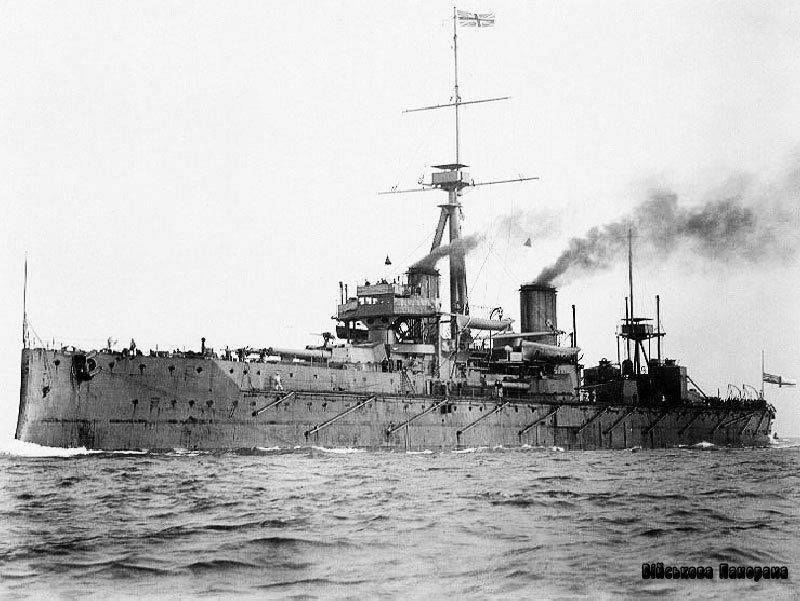
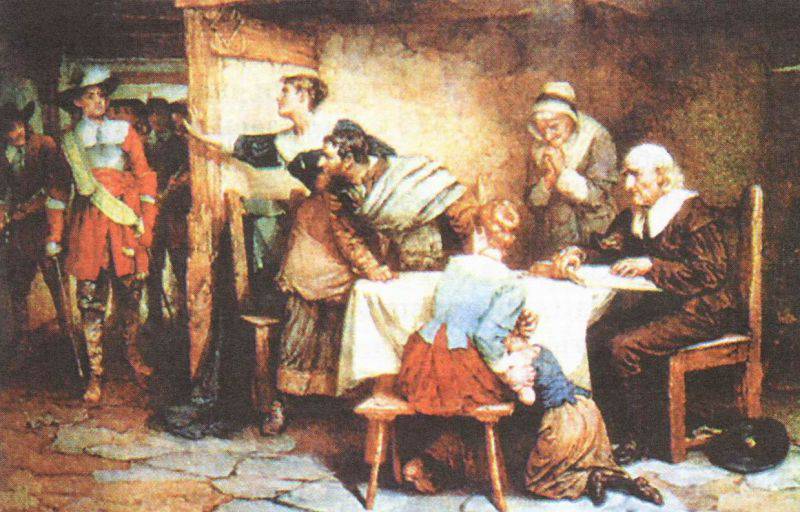

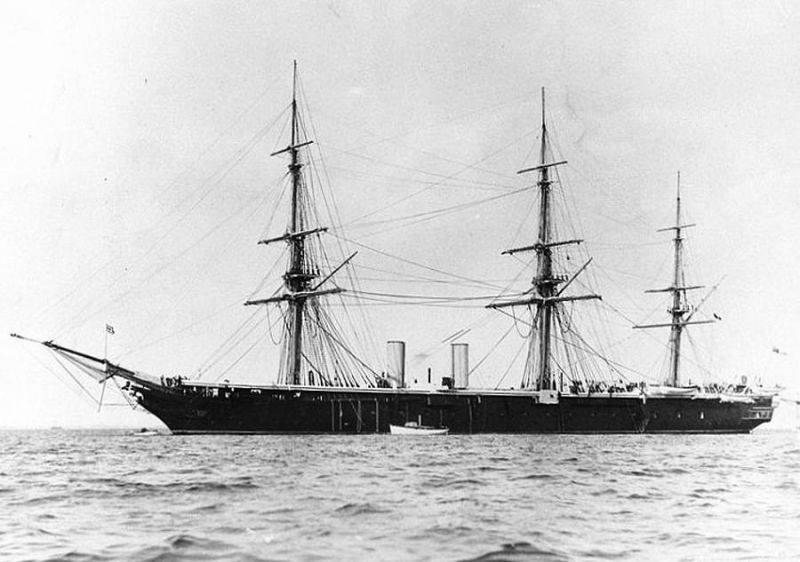
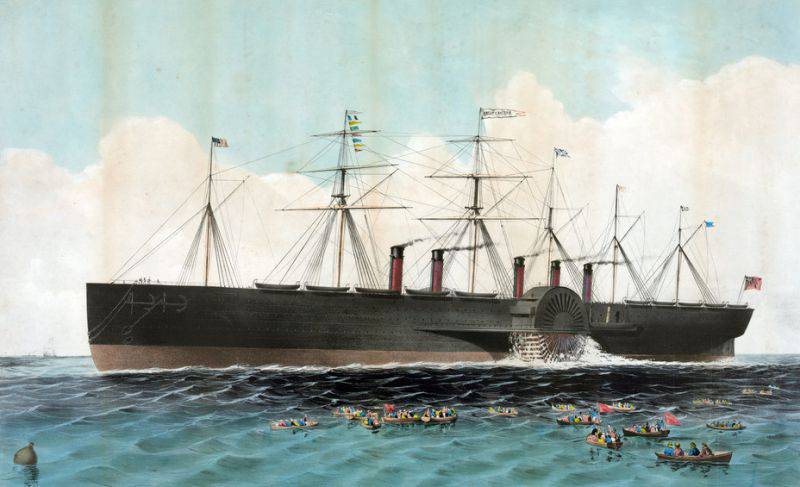
Information